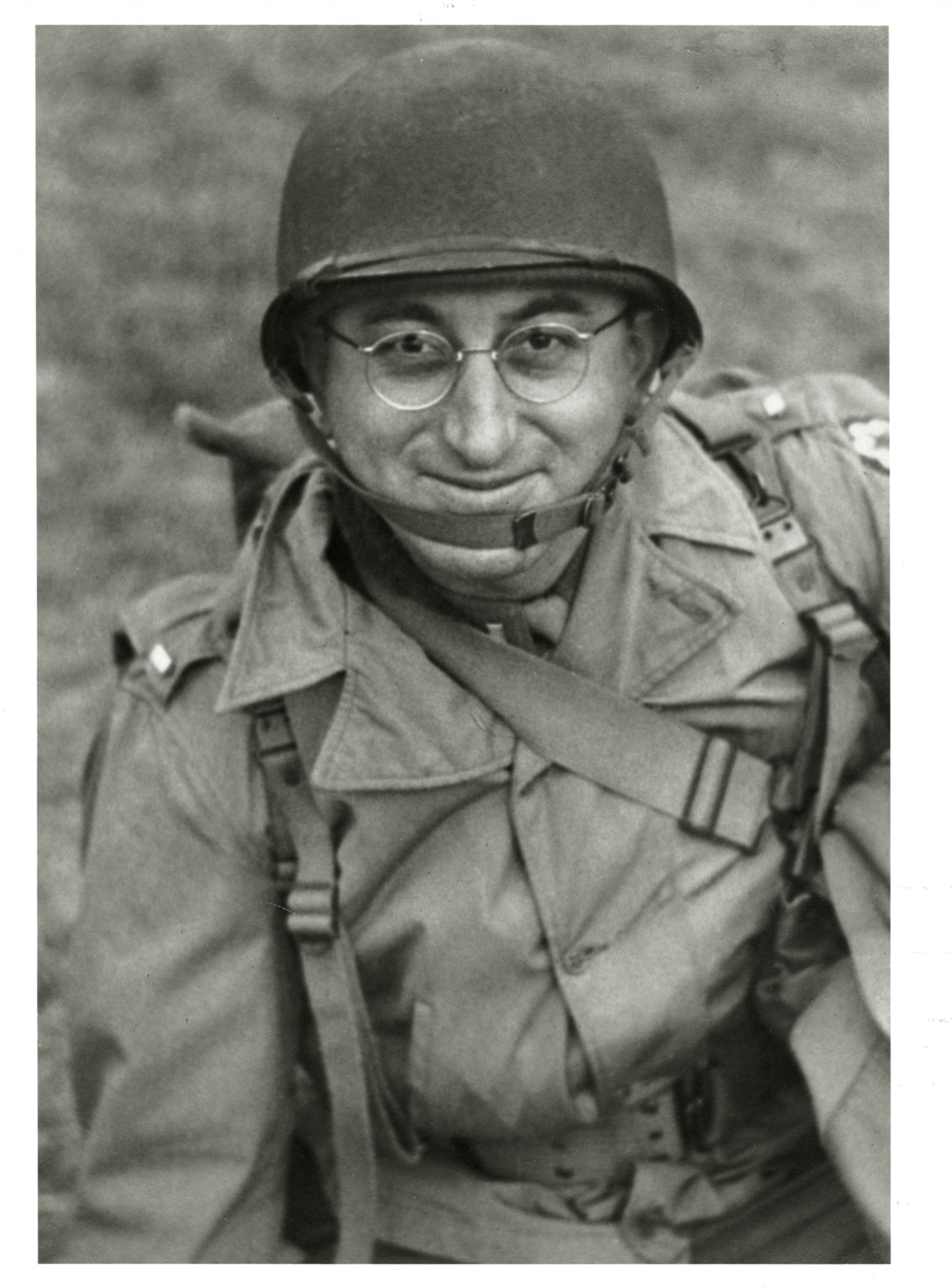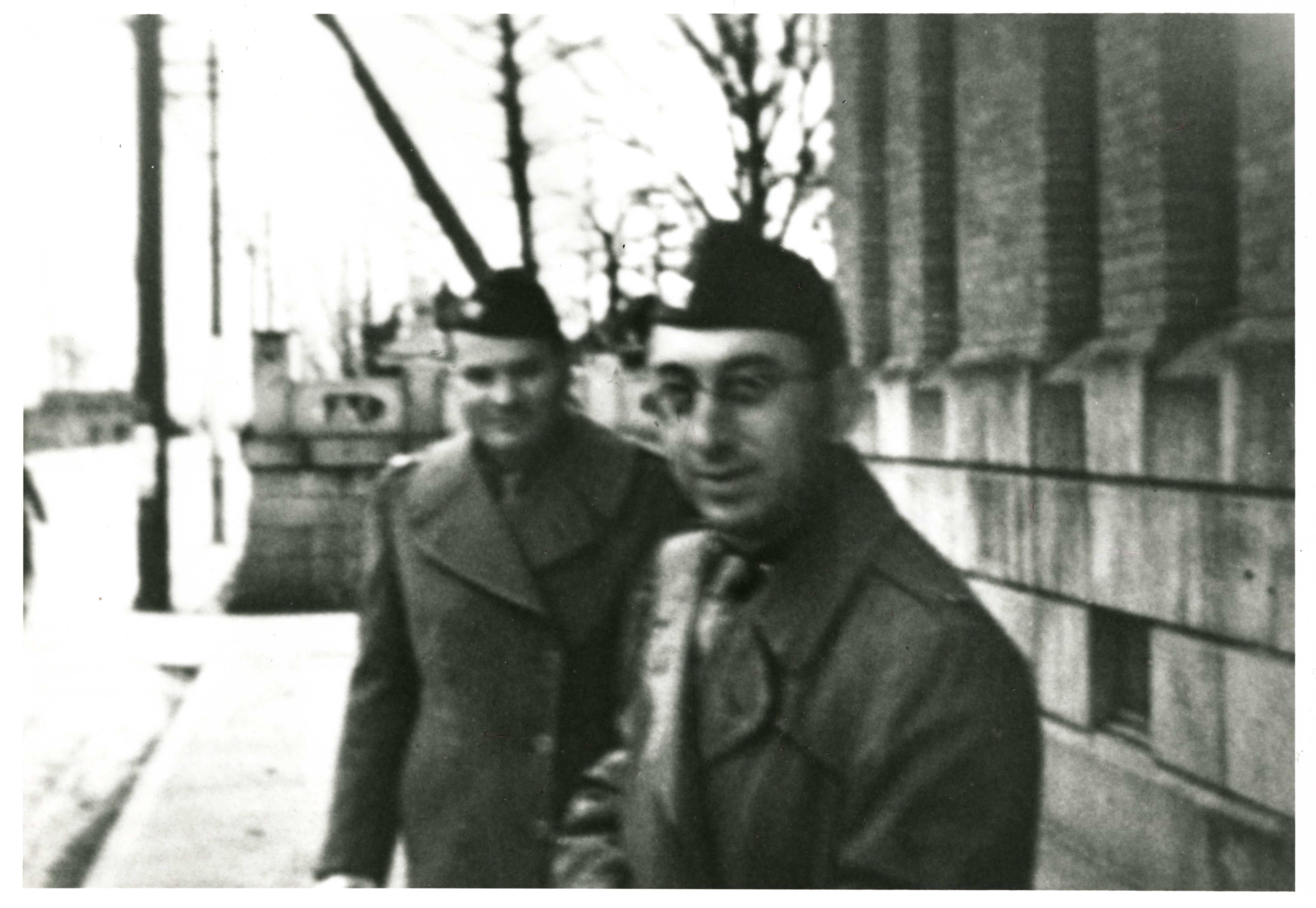World War II
In 1943, Kirsner decided to enlist in the United States Army during World War II as a physician. His training was incredibly grueling when he joined: he ran mile after mile, climbed walls, and was dropped in the woods for survival training. Even though he was a doctor, there were no exceptions to this training.
After basic training, Kirsner traveled to Europe to care for wounded troops on the Allied side, which became his new normal for several weeks. He collaborated with other doctors in Belgium to care for concentration camp victims. They had been starved and struggled with eating until Kirsner suggested that they eat small meals until they built up their strength.
Kirsner was sent to Utah Beach, Normandy, in 1944 after D-Day occurred to help establish hospitals in the area. Kirsner was responsible for caring for U.S. soldiers, German prisoners of war, and more survivors from Nazi concentration camps. After the end of World War II in Europe, on May 8, 1945, Kirsner was transferred to the Pacific in Japan, where he advised on the rehabilitation of more prisoners of war and helped establish the first American occupation hospital at Sagami-Ono, Japan. Kirsner was discharged from the Army in 1946 at the rank of Major, with three battle stars, returning to Chicago and his family.
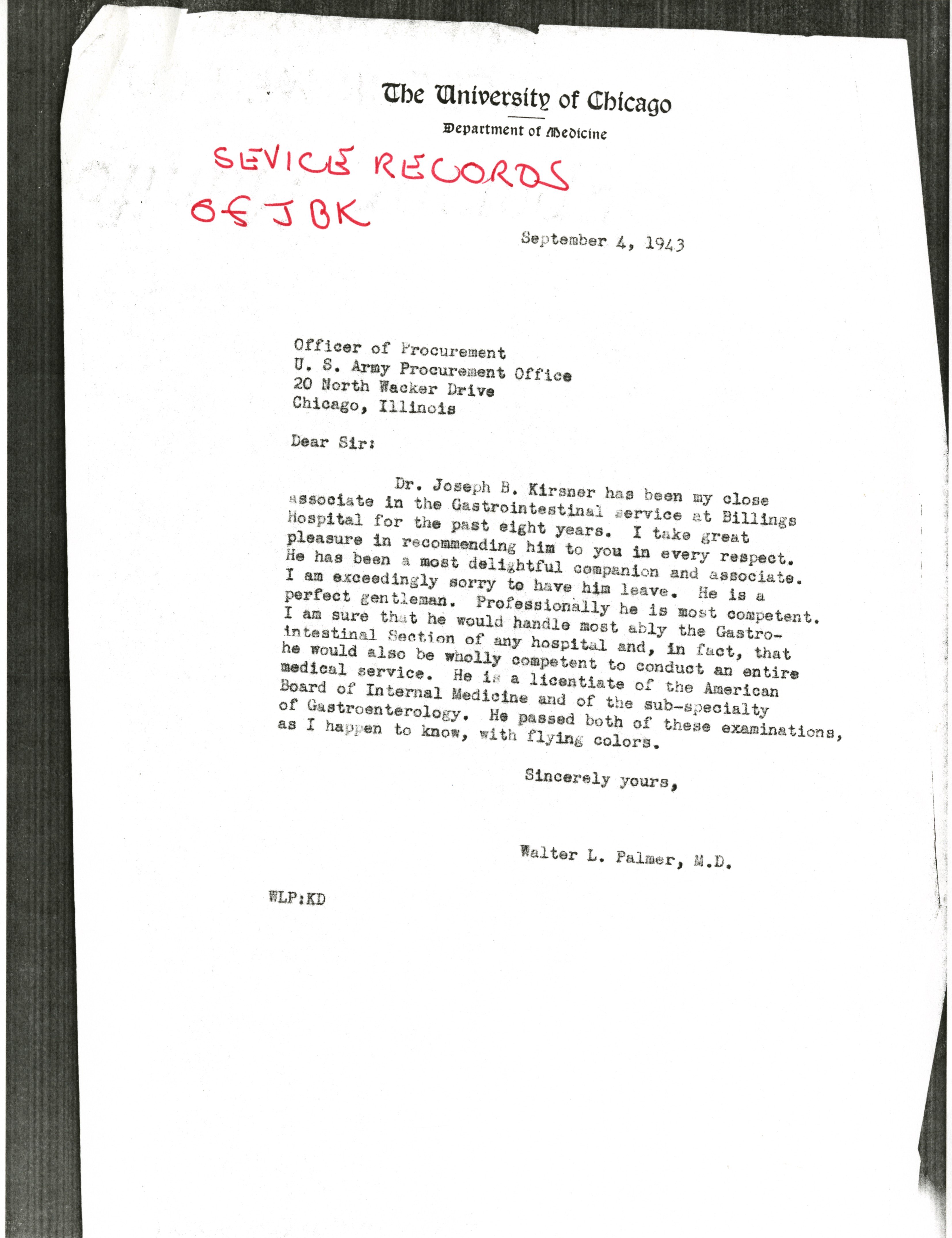
Kirsner, Joseph B. Papers, Box 4, Folder 10, Hanna Holborn Gray Special Collections Research Center, University of Chicago Library.
Palmer was Kirsner’s mentor and friend and the reason why Kirsner became interested in gastroenterology. Palmer introduced gastroenterology as a field to study and research within the medical profession.
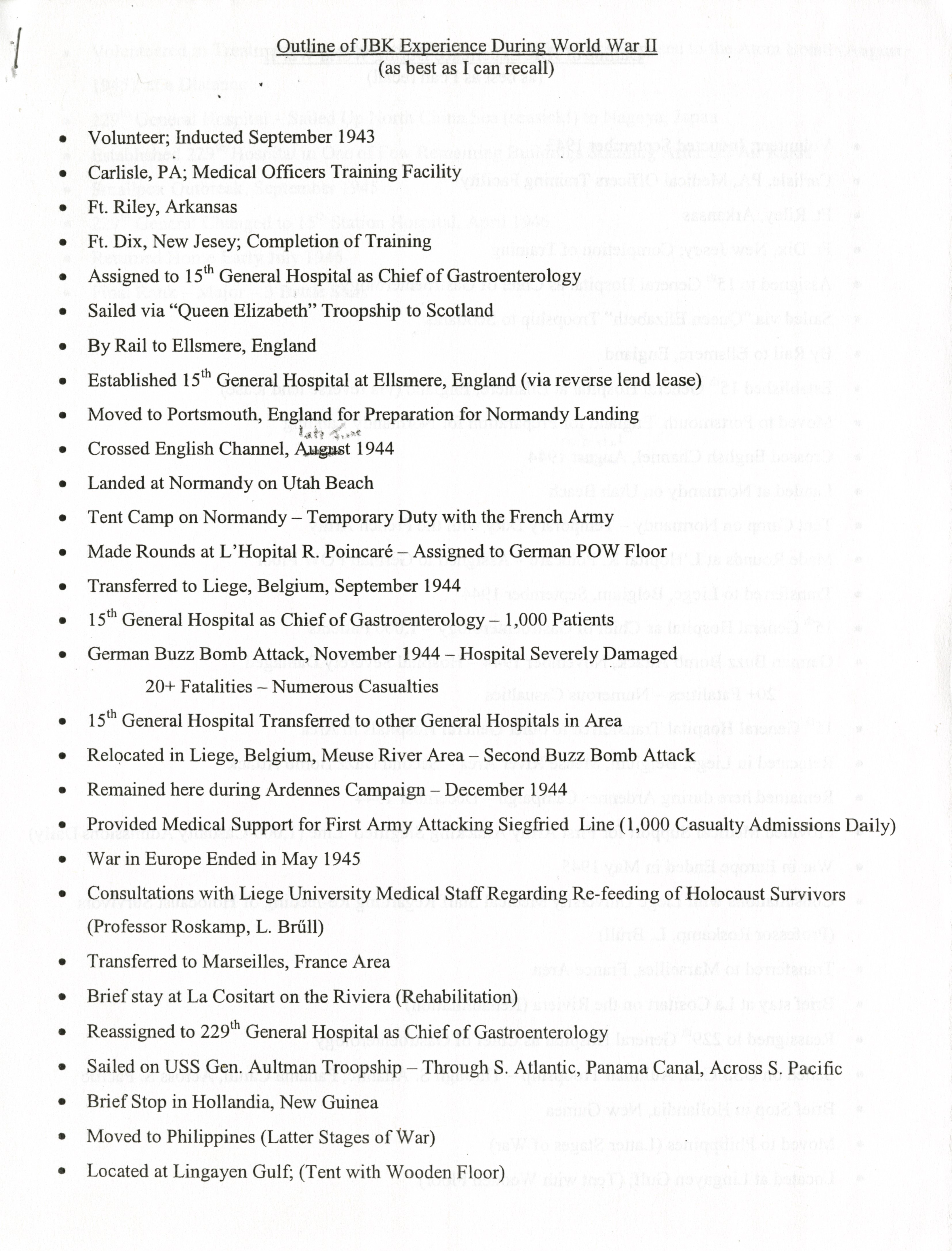
Kirsner, Joseph B. Papers, Box 4, Folder 10 Hanna Holborn Gray Special Collections Research Center, University of Chicago Library.
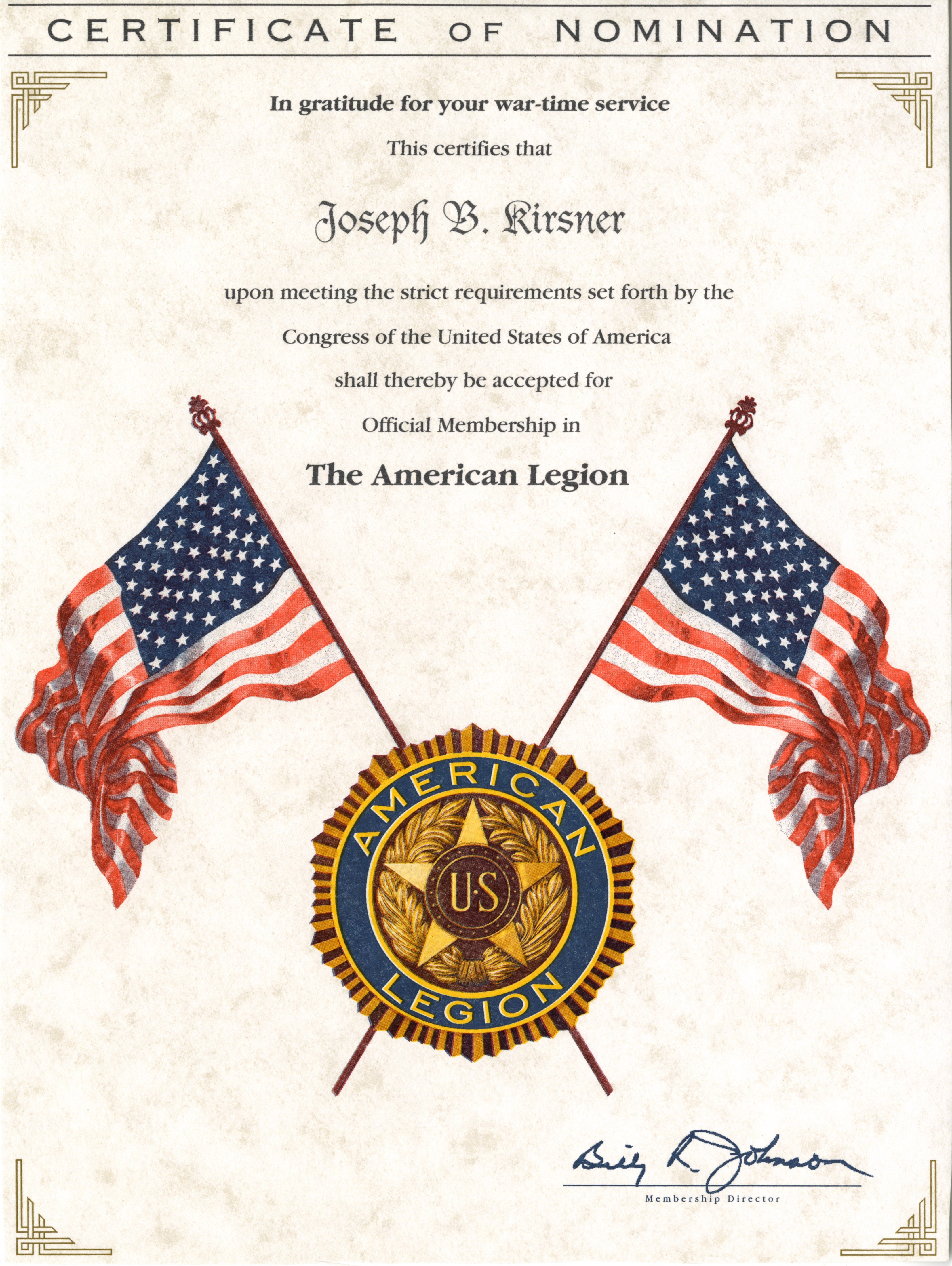
Kirsner, Joseph B. Papers, Box 62, Folder 3, Hanna Holborn Gray Special Collections Research Center, University of Chicago Library.
The American Legion is a non-profit organization for U.S. war veterans. It provides services and benefits for veterans. The Legion was formed after World War I and has been active for over 100 years.
